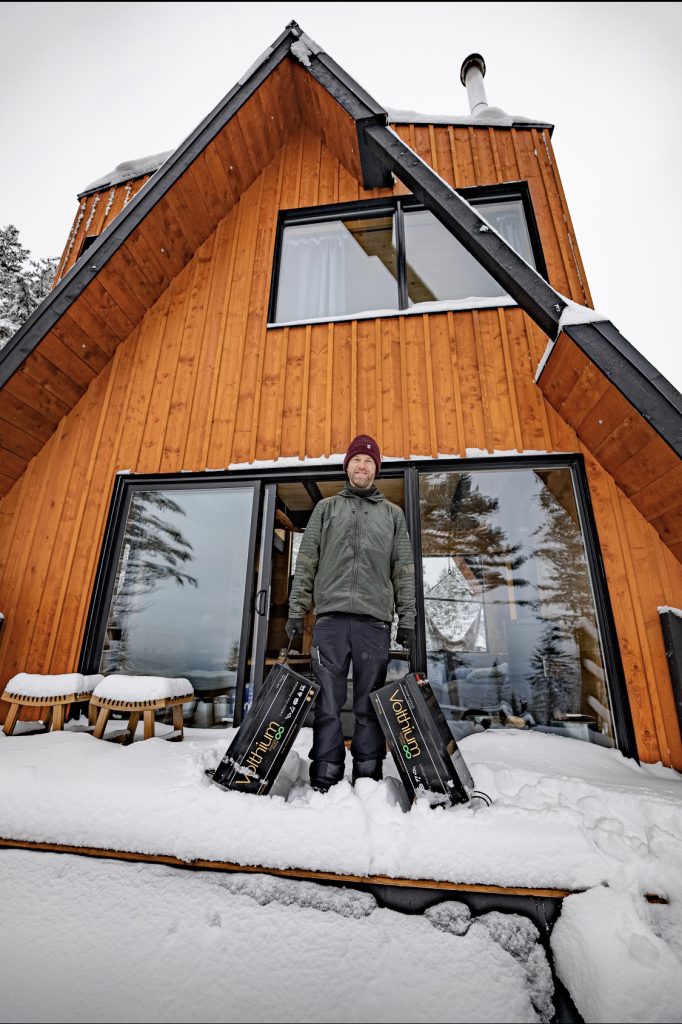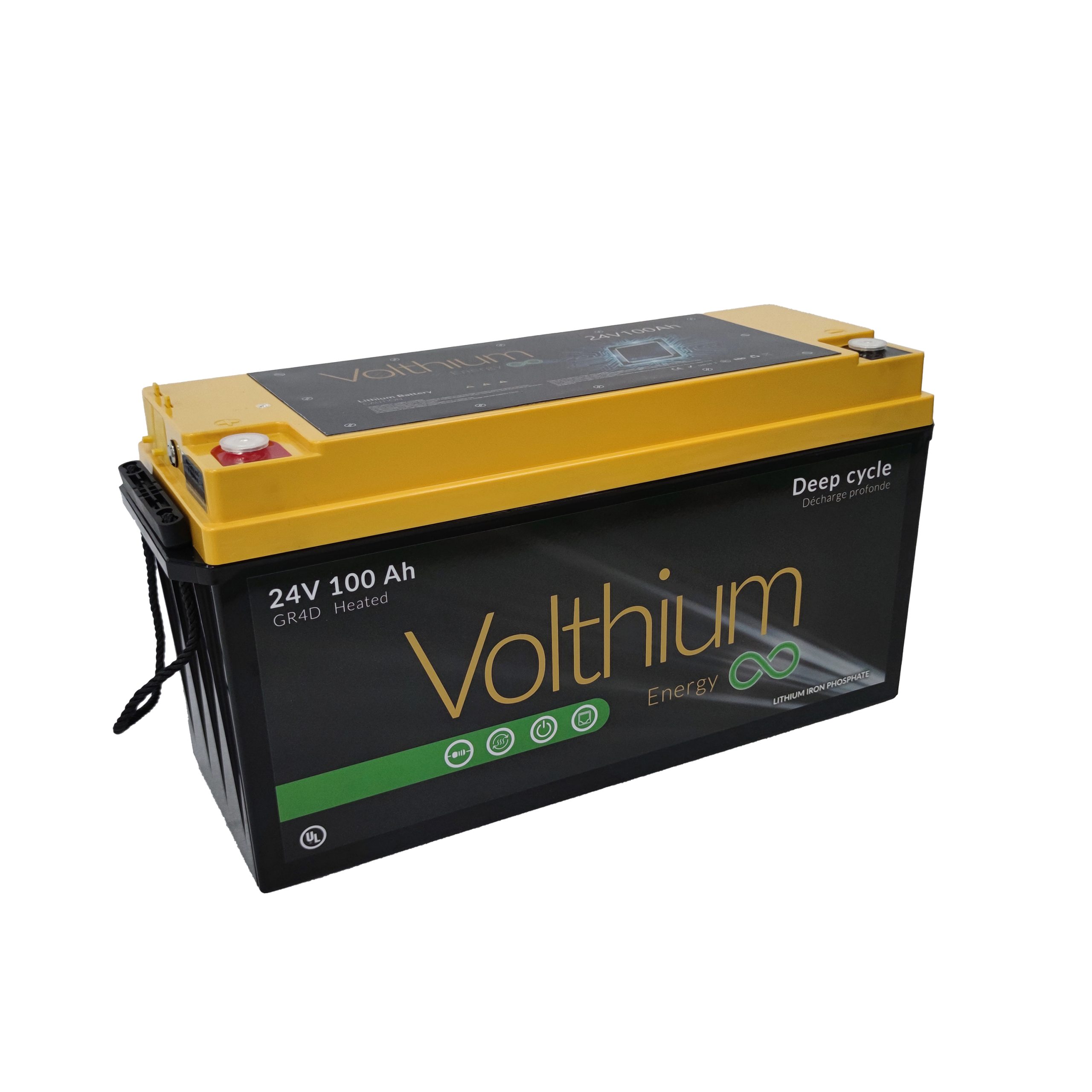Off-grid solar system with Volthium
Despite the rise of grid-connected solar systems, off-grid solar panels continue to be in high demand. The best standalone solar systems make it easy to power secluded cabins, motorhomes, and almost anything that is or ventures outside of grid coverage.
Hours of market research were conducted and dozens of products reviewed to create a reliable list of the best off-grid solar systems. We have based each choice on our extensive solar methodology, which focuses on key factors such as system components, price and warranties, to help you find the best solution for your off-grid solar project.

Off-grid or on-grid solar systems
There are two ways to use solar energy: off-grid systems and grid-connected systems. Although these two systems technically work in the same way, their difference lies in whether or not they are connected to the local power grid. In off-grid systems, solar panels still produce energy, but this is stored in batteries rather than being sent back to the grid, as is the case with grid-connected systems. This stored energy can be used to power devices in remote locations, such as cabins in the woods, recreational vehicles (RVs), or boats.
Nowadays, grid-connected systems are more widespread, as most people live in areas covered by an electrical grid. However, when it comes to powering remote locations like cabins, RVs, or boats, off-grid solar is often the only viable option.
Pros and Cons of Being Off-Grid
The benefits of off-grid solar energy:
- Allows access to independently usable energy, without depending on grid coverage.
- Offers portable solar panel options.
- Has a versatility of applications (usable on small houses, motorhomes, boats, etc.).
- Smaller and less expensive than conventional systems.
The disadvantages of off-grid solar energy:
- Almost always need solar batteries to store energy.
- Inability to take advantage of net metering and other financial incentives.
- Large systems can be difficult to install, as most DIY kits are designed for small installations.
What to Look for in an Off-Grid Solar System
When considering purchasing an off-grid power system, there are a few factors to consider:
- Your energy needs: It is essential that your system can produce enough energy to cover your consumption. You can estimate this consumption by totaling the expected loads for each electrical appliance and device you plan to use, or you can use an online solar calculator.
- Cost of your installation: Finding a balance between the cost of your installation and its functionality is important. Look for devices that offer high efficiency, smart features, and a reasonable price.
- Ease of installation: The best devices are designed for easy installation. It is still recommended to approach a professional installer if you do not have knowledge in the field.
- Batteries and storage capacity: Opt for high-efficiency lithium batteries such as our Volthium batteries. High storage capacity will allow you to power your devices and devices for longer periods of time.
- Additional equipment: A proper system requires more than solar panels and batteries. Do not hesitate to contact us or a professional to learn about the different equipment needed for your installation, such as cables, cable ties, connectors, etc.
- Equipment warranty: An extended warranty is generally preferred. The industry standard for solar panels is a 10-year product warranty and a 25-year performance warranty. Our Volthium batteries are also guaranteed for 10 years and have a lifespan of more than 15 years.

Key elements of an off-grid system
While specific components may vary from vendor to vendor, most off-grid solar installations include the following:
- Solar panels: Solar panels, also known as photovoltaic (PV) modules, are the central component of an off-grid solar system. They convert sunlight into electricity, which is then routed through the system’s wiring to provide power. Different types of solar panels, such as monocrystalline and polycrystalline, are available for residential and off-grid applications.
- Inverter: Most home appliances run on alternating current (AC), while solar panels produce direct current (DC). The inverter converts direct current from the solar panels and battery into alternating current, allowing solar energy to be used to power your appliances.
- Battery: Batteries store excess energy produced by solar panels during the day, to provide electricity during the night, on cloudy days or in the event of a power outage. By opting for a Volthium battery, you ensure that you have a battery that is durable, of the best possible quality and resistant to extreme temperatures. In particular, we have developed a self-heating technology to allow you to recharge your battery without damaging it during the Canadian winter!
- Solar charge controller: The flow of energy between the solar panels and the battery can vary, which can reduce the efficiency of the battery charge and even damage its cells. A solar charge controller optimizes incoming current and voltage, improving system efficiency and protecting batteries from overcharging.
- Miscellaneous components: Any solar energy system requires several small components to function properly, such as cables, nuts, bolts, connectors, fuses, etc. These elements are sometimes grouped under the term “Balance of System” (BoS).
The balance sheet
Off-grid solar systems have become very popular with campers and people looking to power small homes or shacks when they don’t have access to the traditional power grid. They also offer a convenient solution for powering the appliances of a cabin or food truck, reducing dependence on conventional power companies.
The market offers a multitude of solutions, each with its own specifications and characteristics. No kit is universally the best – it’s essential to consider the specific settings based on your needs.
Ultimately, the key is to fully understand your own needs, narrow down options based on system features, warranties, and cost, and then make your choice. For a more permanent solar option for residential use, do not hesitate to contact us or a professional.